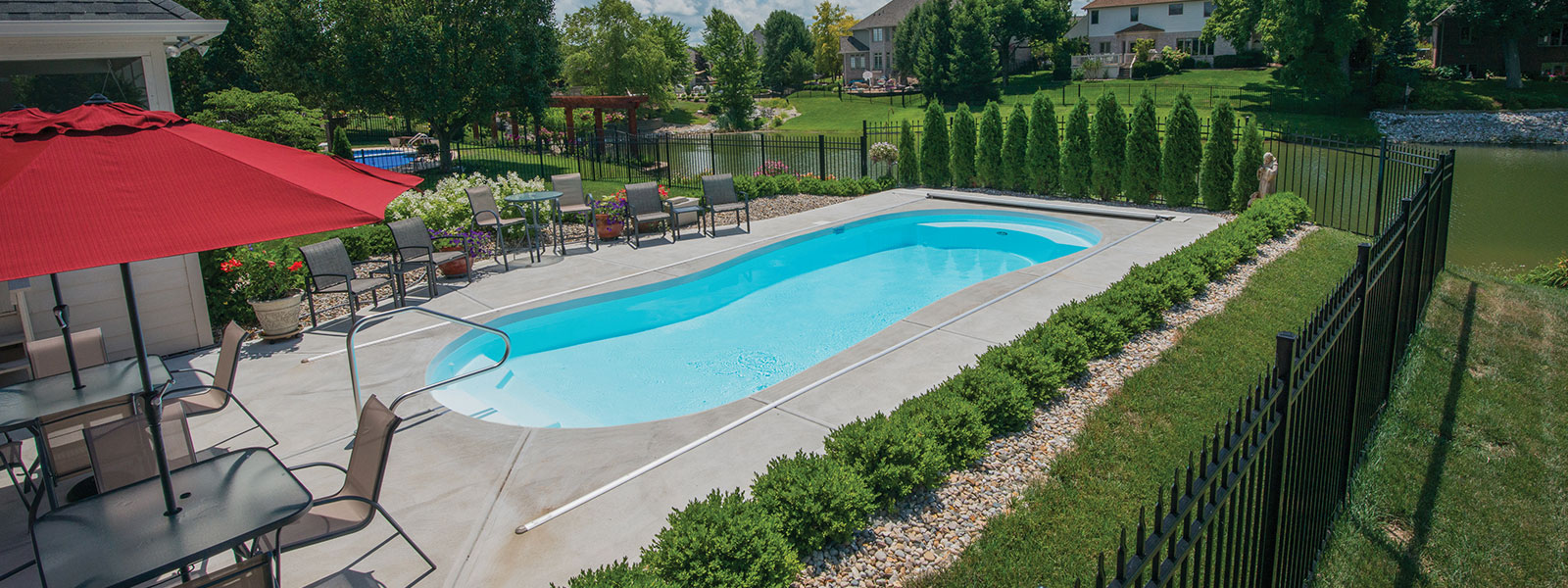877-929-7665
Environmentally Friendly Pools: Why Fiberglass Leaves Behind the Smallest Footprint
Today, pool buyers are increasingly more eco-conscious and ask questions like, “Can a pool be environmentally friendly?” and “What is the most eco-friendly pool type?” Traditionally, swimming pools have not been very sustainable. However, advancements have made it possible to reduce their environmental impact. Still, some types of inground pools have a greater environmental impact than others. Fiberglass pools are often considered the most environmentally friendly pools for their long-term durability and lower energy and chemical use. Even the manufacturer can make a difference. The Role of Long-Term Durability The long-term durability of fiberglass pools makes them more sustainable by significantly reducing the need for repairs and replacements, which have considerable environmental consequences. Vinyl liners, for example, typically require replacement every five to ten years, contributing to landfill waste. Additionally, vinyl-liner pools’ foundational steel panels can rust and leach chemicals into the groundwater, harming the environment. Gunite pools reinforced with steel mesh or rebar also present risks as they can corrode over time, leaching chemicals and rust. Maintaining gunite pools requires acid washing, which can also release hazardous substances into the ecosystem. Concrete and vinyl-liner pools also have inherent environmental drawbacks due to the high carbon footprint of cement production […]
Read More